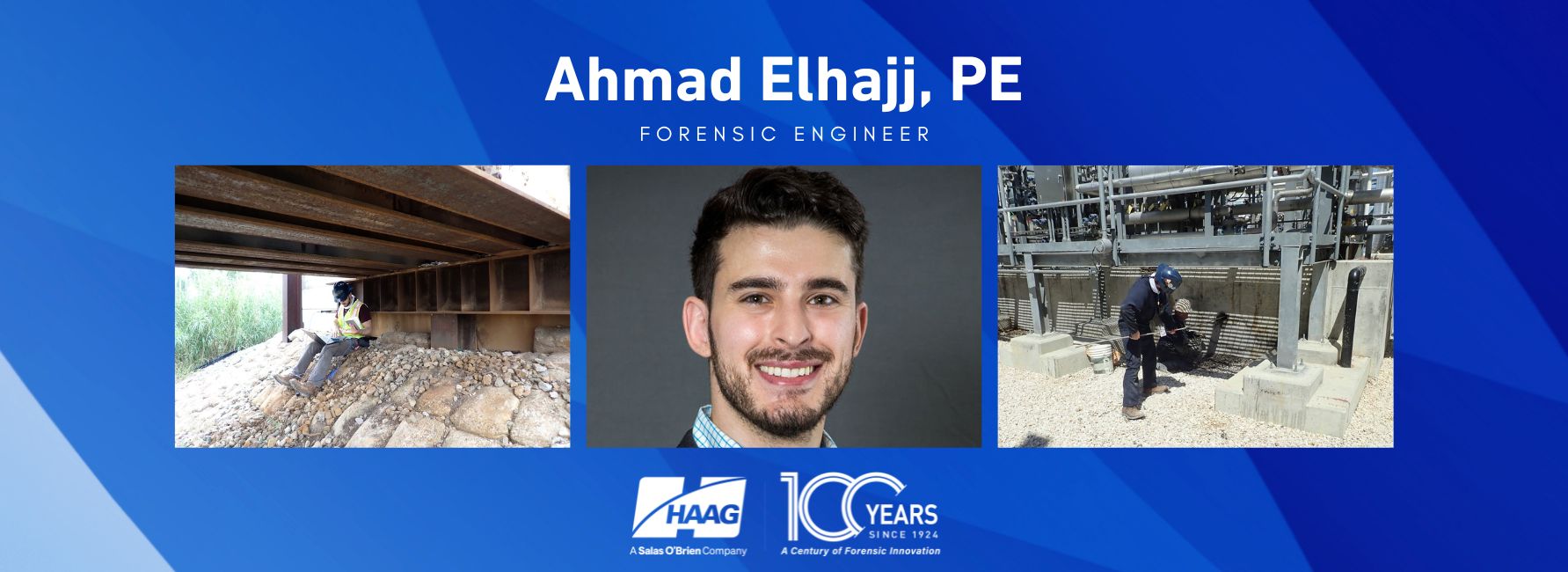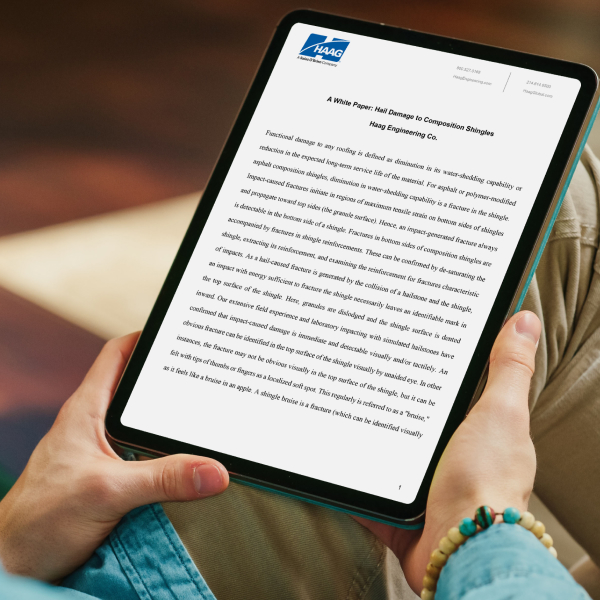Ahmad Elhajj: Expert Forensic Engineer in Baltimore, MD
Ahmad Elhajj’s journey into the world of engineering was deeply influenced by his upbringing in refugee camps with deteriorating civil infrastructure. Witnessing firsthand the impact of poor construction, he was inspired to pursue a career where he could make a significant difference. His passion for evaluating building failures has been a driving force throughout his career, providing him with a sense of fulfillment and purpose. One of his most challenging projects involved constructing a road through Tyre, using locally sourced materials to create a durable concrete matrix without the benefit of established codes or standards. This project stands as a testament to his resourcefulness and commitment to improving infrastructure in resource-limited communities.

To stay abreast of the latest developments in forensic engineering, Ahmad relies on esteemed publications like Structure Magazine and regularly attends conferences hosted by the Structural Engineering Association and the American Concrete Institute. His involvement with professional peers has been instrumental in keeping him updated on industry advancements. Ahmad’s presentation to the ASCE’s Structural Engineering Institute on construction defects in March 2022 and his role on the Committee on Practices to Reduce Failures highlight his dedication to sharing knowledge and improving industry standards most critical to life safety. Recently, he has also navigated the complexities brought about by the integration of Artificial Intelligence (AI) in engineering, demonstrating his adaptability and critical thinking in addressing AI-related challenges in the commercial use of the technology.
Continuous learning is a cornerstone of Ahmad’s professional philosophy. He holds dual degrees in civil engineering and physics from the University of Virginia, complemented by postgraduate work in computer science. Currently, he is pursuing a master’s degree in structural engineering at Auburn University, set to graduate in December 2024. Ahmad emphasizes the importance of developing soft skills, which he believes are crucial for success in the engineering field. His advice to aspiring professionals underscores the necessity of a well-rounded skill set, combining technical expertise with effective communication and problem-solving abilities.
Balancing work and personal life is essential for Ahmad’s productivity and well-being. He advocates for a work environment that supports personal well-being, challenging the outdated notion that excessive pressure leads to better performance. He prioritizes time with his wife, with whom he shares a passion for bouldering, a hobby that they enjoy together. Ahmad also dedicates time to volunteering with Penny Appeal USA, coaching youth wrestling, and reading the works of Edward W. Said and Antony Lowenstein.
Looking ahead, Ahmad is excited about the future of engineering, particularly the increasing complexity of codes and the growing emphasis on prescriptive design allowances. This evolution allows engineers to focus on solving intricate problems, such as designing bridges for vessel impacts. Ahmad is enthusiastic about offering non-destructive evaluation services to address building failures, leveraging his extensive expertise to contribute to the field’s advancement. His forward-thinking approach and commitment to excellence position him as a valuable asset to the engineering community.
Ahmad Elhajj, P.E., is a forensic engineer based in Baltimore, Maryland. In his forensic practice, Mr. Elhajj applies meticulous attention to detail, delivering comprehensive scientific analysis and reporting to educate clients with answers to their technical questions. He brings the big picture into focus with thorough scientific data and analysis to qualify its soundness. His capabilities extend well beyond traditional origin and cause determinations to include wraparound services like cost estimating and remediation design, as applied to the built environment, temporary construction supports and structures, and construction materials. Structures of all types, bridges and buildings, from the ground to the sky, are carefully analyzed under the applied sciences governing their physical behavior. This is Ahmad’s craft—Investigative Sciences, Applied.

